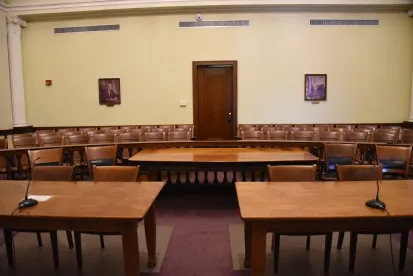About a year ago, in Creasy v. Charter Communications, Inc., 2020 WL 5761117 (E.D. La. Sept. 28, 2020), a federal district court in Louisiana held that the TCPA is unconstitutional as applied to any calls made between November 2015 and July 6, 2020. The Creasy court began with the holding in Barr v. AAPC that the TCPA was void while an unconstitutional provision was part of it. The court then reasoned that the Supreme Court’s decision in Barr v. AAPC cannot be applied retroactively. Ultimately, the court determined that calls made pre-AAPC were legal and cannot be made illegal by post hac action of the Supreme Court. Creasy, along with several other district court decisions following the same logic, dealt yet another deadly blow to the TCPA.
On September 9, 2021, however, the Sixth Circuit became the first federal court of appeals to reject Creasy’s reasoning. In Lindenbaum v. Realgy, LLC, No. 20-4252, 2021 WL 4097320 (6th Cir. Sept. 9, 2021), the Sixth Circuit ruled that the TCPA can be enforced during November 2015 and July 2020 — the timeframe that the government-backed debt exemption seemingly existed. The Lindenbaum court considered the Chief Judge of the Northern District of Ohio’s decision that dismissed a putative class action arising from prerecorded calls. In the trial court, the defendant had moved to dismiss, arguing that “severance can only be applied prospectively,” that the applicable statutory sections were unconstitutional when the calls were made, and that courts lack jurisdiction to enforce unconstitutional statutes. In opposition, the plaintiff argued that a footnote in Justice Kavanaugh’s plurality opinion in Barr v. AAPC suggests “that severance of the government-debt exception applies retroactively to all currently pending cases.” The district court agreed with the defendant and, following Creasy, reasoned that this issue “was not before the Supreme Court,” and the lone footnote in Justice Kavanaugh’s plurality opinion is “passing Supreme Court dicta of no precedential force.” The court reasoned that, while judicial interpretations of laws are “given full retroactive effect in all cases still open on direct review and as to all events,” severance is different because it is “a forward-looking judicial fix” rather than a backward-looking judicial “remedy.” Thus, it concluded, the effect of severance was to render the statute void during the time the government debt exception was in place and dismissed the claims. The plaintiff appealed.
On appeal, the defendant contended that severability is a remedy that fixes an unconstitutional statute, such that it can only apply prospectively. Alternatively, the defendant argued that if it can be held liable for the period from 2015 to 2020, but government debt collectors who lacked fair notice of the unlawfulness of their actions cannot, then that would recreate the same First Amendment violation the Court recognized in AAPC. The Sixth Circuit rejected both of the defendant’s arguments. First, the Sixth Circuit concluded that the Supreme Court recognized the Constitution had automatically displaced the government debt exception from the start, and “then interpreted what the statute has always meant in its absence . . . That legal determination applies retroactively.” 2021 WL 4097320 at *4 (citations omitted). Second, the Sixth Circuit explained that the defendant’s free speech argument was flawed because fair notice is not tied to speech. Rather, whether a debt collector had fair notice that it faced liability under the TCPA turned on whether it reasonably believed the statute prohibited its conduct. The court noted, “[t]hat, in turn, will likely depend in part on whether the debt collector used robocalls to collect government debt or non-government debt. But applying the speech-neutral fair-notice defense in the speech context does not transform it into a speech restriction.”
The plaintiffs will certainly cite the Sixth Circuit’s decision in Lindenbaum to overcome the Creasy line of cases. But Creasy’s logic isn’t defunct yet. It is possible that other circuits will come out the other way, leading to a circuit split and eventually a cert petition.





 />i
/>i

